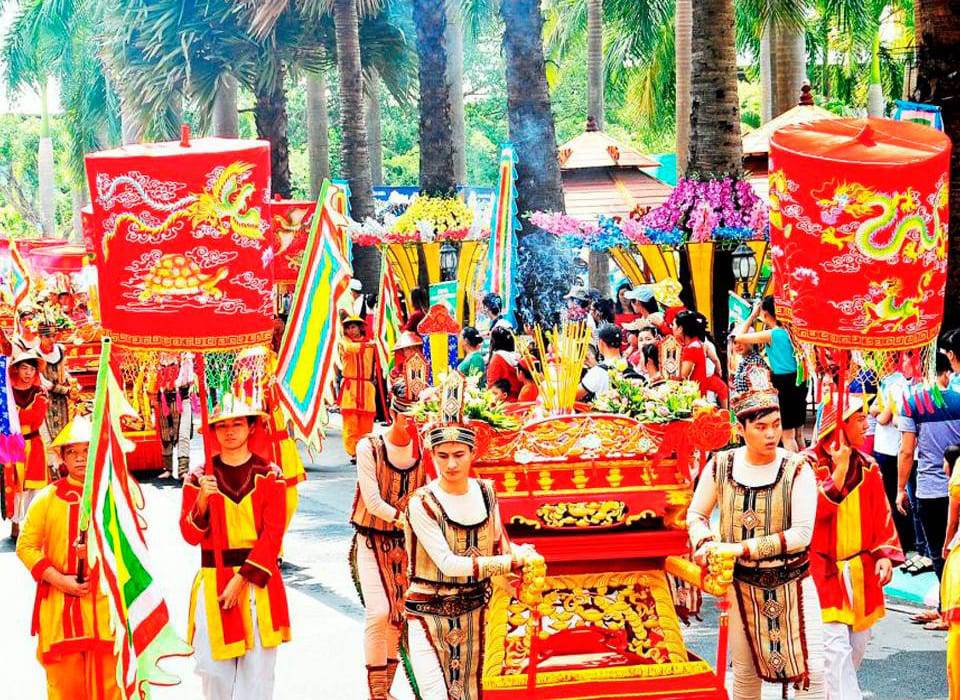Held every year from the 8th until the 11th day of the third Lunar month, the Hung King Temple Festival, also known as the Death Anniversary of the Hung Kings, is considered a public holiday in Vietnam since 2007.
The festival commemorates the contribution given by
Vietnam’s first emperors and founders.
Kinh Durong Vurong was the first ever Hung King.
He came into power during 2879 BC wherein he ruled
North Vietnam and a portion of Southern China.
The region in which he ruled is Van Lang, which is considered the first-ever country of the Vietnamese.
The regime of the Hung Kings was considered a brilliant beginning in establishing the country as a sovereign nation.
Hung Kings’ Temple Festival Events
Considered as one of Vietnam’s grandest national festivals, the event sees locals swarm to the Nghia Linh Mountain and Hy Cuomg Commune, as well as the district of Lam Thao and Phu Tho Province.
The main event of the festival occurs on the 10th day of the third Lunar month.
At this time, locals are provided the right to not work.
The Hung Temple is where the major ceremony will take place. It is situated on the mountain of Nghia Lin within the province of Phu Tho.
A procession begins at the mountain’s foot and is set to stop at each temple for guests’ sake.
Prior to reaching the temple, pilgrims ensure that they provide prayers and incense to the highly revered Hung Kings.

Similar to most festivals that take place in the country, this event is divided into two parts.
The first part is the traditional ritual of offering incense, while the second is where recreational activity commences.
The ritual occurs at the Upper temple and allows locals to express their earnest gratitude and respect to the “Dragon and Fairy descendants.”
Sacrifices included in the tradition include a goat, pig, and cow. Delicacies are also sacrificed some of which are Day cake, Chung cake, and a sumptuous feast of five different fruits.
The incense rite begins the instance an old bronze drum is sounded off.
The elders, pilgrims, and state representatives thus start to conduct the offering.
Procession marches are also held. After the traditional ritual, modern activities temper the Festival’s serious tone.
Previous festivals saw Xoan sing in the Upper Temple, while Ca Tru similarly performed.
Other activities locals and visitors can enjoy are cooking rice, cross-bow shooting, cock fighting, swinging contests, and dragon dancing.
Traditions
The Hung King Temple Festival stands as a powerful symbol of
Vietnam’s inherent strength.
It also represents the national unity practiced and believed by all locals.
Vietnamese citizens settled in other countries are able to similarly participate in the festival by joining their fellow brothers and sisters in spirit to proudly commemorate the country’s collective ancestors.
The festival is an important part in the cultural lives of all Vietnamese people regardless of where they came from and where they currently are.